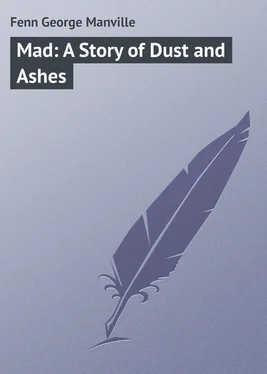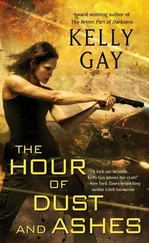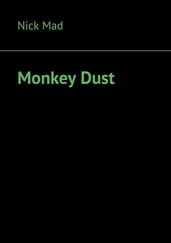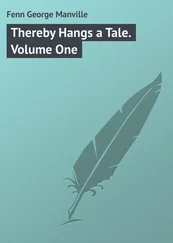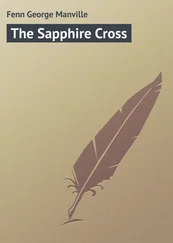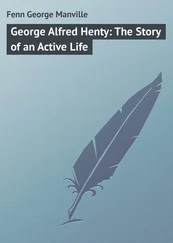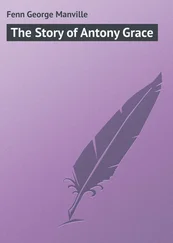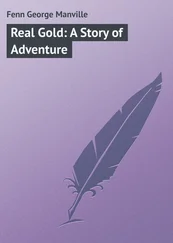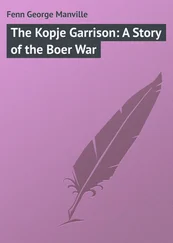George Fenn - Mad - A Story of Dust and Ashes
Здесь есть возможность читать онлайн «George Fenn - Mad - A Story of Dust and Ashes» — ознакомительный отрывок электронной книги совершенно бесплатно, а после прочтения отрывка купить полную версию. В некоторых случаях можно слушать аудио, скачать через торрент в формате fb2 и присутствует краткое содержание. Жанр: foreign_prose, на английском языке. Описание произведения, (предисловие) а так же отзывы посетителей доступны на портале библиотеки ЛибКат.
- Название:Mad: A Story of Dust and Ashes
- Автор:
- Жанр:
- Год:неизвестен
- ISBN:нет данных
- Рейтинг книги:5 / 5. Голосов: 1
-
Избранное:Добавить в избранное
- Отзывы:
-
Ваша оценка:
- 100
- 1
- 2
- 3
- 4
- 5
Mad: A Story of Dust and Ashes: краткое содержание, описание и аннотация
Предлагаем к чтению аннотацию, описание, краткое содержание или предисловие (зависит от того, что написал сам автор книги «Mad: A Story of Dust and Ashes»). Если вы не нашли необходимую информацию о книге — напишите в комментариях, мы постараемся отыскать её.
Mad: A Story of Dust and Ashes — читать онлайн ознакомительный отрывок
Ниже представлен текст книги, разбитый по страницам. Система сохранения места последней прочитанной страницы, позволяет с удобством читать онлайн бесплатно книгу «Mad: A Story of Dust and Ashes», без необходимости каждый раз заново искать на чём Вы остановились. Поставьте закладку, и сможете в любой момент перейти на страницу, на которой закончили чтение.
Интервал:
Закладка:
“There, Tom; that’s done!” chuckled the old man, replacing the will in the bureau, turning the key, and dropping it on the carpet as he tried to place it in his pocket. “Now, look here, Tom,” he said, taking the poker, and making a hole in the fire, “that envelope isn’t to be opened till I’m gone, Tom; and I’ll tell you this – you’re one of the executors, and then you’ll know what’s in it, eh? – what’s in it. Now, I won’t tamper with it any more, and no one else shall.” As he spoke he dropped the fine old ring into the hot pit he had prepared for its reception, and sat down, chuckling at his brother.
Doctor Hardon sat down breathing heavily, with strange thoughts in his heart, as he looked upon the weak old man before him, and thought of his possessions.
“Now, Tom,” said Octavius, chuckling and placid, as he took the little bottle and spoon from the chimney-piece, “there’s a decanter with some old port in that sideboard cellaret, and a glass with it. Help yourself, Tom; help yourself; this is my wine.”
“But you took a quantity of that laudanum just now,” said the doctor.
“You’re a fool, Tom! You’re a purring, sleek-coated fool!” chuckled the old man, hastily filling the spoon again, and swallowing its contents, “Help yourself – you like port, Tom – and then go, and don’t come here any more till you’re sent for.”
Doctor Hardon drew himself up to display his offended dignity, but the old man only watched him and chuckled sneeringly; so he slowly rose, and with his professional roll walked to the sideboard and back, filled his glass, and then placed the decanter upon the table. He then sat down, curiously watching his brother, who lay back in his chair, apparently gazing into the fire. The doctor raised the glass to his lips, lowered it once more, and then his fat white hand played nervously round his mouth, for there were strange thoughts in his heart again – strange, undefined thoughts that did not take any particular shape, though there was the glint and chink of money in them all, and its uselessness to the wreck before him; while the hints he had wanted to give him respecting a loan had been passed for want of opportunity.
The doctor sighed, and seemed relieved; and then he wiped his forehead, which had turned damp; performed the same operation upon his hands, till the neat white cambric handkerchief was reduced to a miserable wisp; when, apparently further relieved, he took up his glass and drained it, but only to fill it again directly.
The port was good, certainly. The doctor played with his glass amorously, touching the rim with his lips, sipping at the bell of the ruby flower like some mammoth bee; held it before the light, and closed one eye to get a more concentrated look at the deep, rich, tawny hue of the fine old wine. Soon he sipped again – largely this time – and rinsed the generous liquor round his mouth, assuming all the airs of a connoisseur; and then he finished the second glassful, and sighed gently, for the effect was decidedly mollifying.
All this while Octavius Hardon never moved, but lay back in his chair. The doctor drew out his watch, and found it was ten; but he felt in no hurry to move, for he was accustomed to being late, and it would cause no uneasiness at home; besides, something might come of this, he thought; and as the idea crossed his mind, his forehead again turned slightly moist, and he glanced uneasily at the motionless figure before him. Then he started, for there was a rustle in the passage, and a tap at the door, which was directly after opened, and the housekeeper brought in a chamber-candlestick.
“Shall I wait up till you go, sir?” she said to the doctor.
“O, no; not for me,” said he. “My brother will let me out. Good-night, Mrs Berry!” And the doctor’s voice was soft and amiable.
“Good-night, sir!” said the woman, and then the door closed. There was once more the rustle in the passage, the sound of a chain and bolts being shot somewhere in the back, the closing of a door, which sent a hollow echo through the deserted house; and then there was silence – a stillness that was quite oppressive; for Octavius lived with but one servant here at the Grange, a middle-aged woman, who attended to the whole of his simple wants. And now the wind sighed mournfully through the trees, a few spots of rain pattered against the window, and the doctor thought uneasily of his long walk home, but not for long, for, softly rubbing his hands, he now turned once more to the decanter.
“A good glass of wine, brother. I think I’ll take another,” he said unctuously; but there was no reply. So the doctor took another; and then, after thoroughly enjoying that glass, another; when now feeling decidedly comfortable, and that the awkward, sharp-cornered, acid crystals his brother’s words had caused to form in his nature were dissolved by the good wine, he rose, smiling, put the decanter carefully away, and began to don his overcoat, which lay across a chair.
It is possible that had the doctor been less intent upon his thoughts and the wine, he might have heard something more than the pattering of a drop or two of rain upon the window, the soughing of the wind, and the regular “tick-tick” of his own large gold watch – a something that sounded like the working of a sharp gimlet boring through the panel of a door, cautiously and softly, to render that door pervious to a sharp, bright eye; but the doctor heard no sound, and turning towards Octavius, he said, “Good-night, Brother Octy!”
There was no answer, and the doctor repeated his valediction, but still without effect; so he knocked the glass over, making it jingle loudly against the lamp, and still Octavius did not move.
Doctor Hardon’s forehead grew damp again, but very slightly now; he drew out his watch – it was half-past eleven, and he was surprised to see how the time had gone. He walked round in his soft, silent way, in those boots of his that never creaked, to the fireplace on the other side of his brother; took the phial, removed the stopper, and smelt at the contents; replaced the bottle, and after looking in the withered face for a few moments, he lightly rested a finger upon the uncovered wrist before him.
Apparently satisfied, he leaned over the fire where the signet-ring had been cast; then stooped to pick up the tongs, but shook his head, rose again, and stepping silently towards the door, he gave one glance at the bureau, when his toe struck something, kicking it along the carpet.
The doctor stopped and stooped again, feeling about the floor; took the lamp from the table, whose glass jingled loudly, so that he stopped to gaze at his brother, who, however, never stirred; while, after a moment’s search, the doctor picked up the bureau-key, and then replacing the lamp, stood beside the table quite irresolute. He glanced at his brother, then at the door and window, and lastly at the bureau; sighed, laid down the key beside the lamp, said “Good-night” again, stepped softly to the door, passed through and closed it after him; when, for the space of five minutes, there was a silence in the room, broken only by the sighing of the wind, and the tinkle of the cinders falling into the ash-pan.
Did Octavius Hardon, in his opium-produced sleep, dream of his son struggling with sorrow and despair in the desolation of his heart; of the son who had appealed to him again and again for the help the father’s obstinacy refused? Perhaps so, for more than once he moaned, but so softly that it might have been but the wind with whose sighs the sound was strangely mingled.
The lamp burned brightly, shedding a well-defined halo for a certain space around; but the shadows that it cast in the distant parts of the room were wild and grotesque. The motionless figure of Octavius Hardon, with the light full upon the skull-cap, was thrown in strange relief upon the ground in the semblance of a sleeping goblin; chairs were elongated, while the easy prie-dieu that the doctor had occupied seemed turned into some strange beast stooping for its spring upon the sleeping man. The corners of the room were full of dark moving shades, as the lamp-flame danced; while the tall bureau and bookcases looked in their black solemnity the repositories of mysteries untold.
Читать дальшеИнтервал:
Закладка:
Похожие книги на «Mad: A Story of Dust and Ashes»
Представляем Вашему вниманию похожие книги на «Mad: A Story of Dust and Ashes» списком для выбора. Мы отобрали схожую по названию и смыслу литературу в надежде предоставить читателям больше вариантов отыскать новые, интересные, ещё непрочитанные произведения.
Обсуждение, отзывы о книге «Mad: A Story of Dust and Ashes» и просто собственные мнения читателей. Оставьте ваши комментарии, напишите, что Вы думаете о произведении, его смысле или главных героях. Укажите что конкретно понравилось, а что нет, и почему Вы так считаете.
